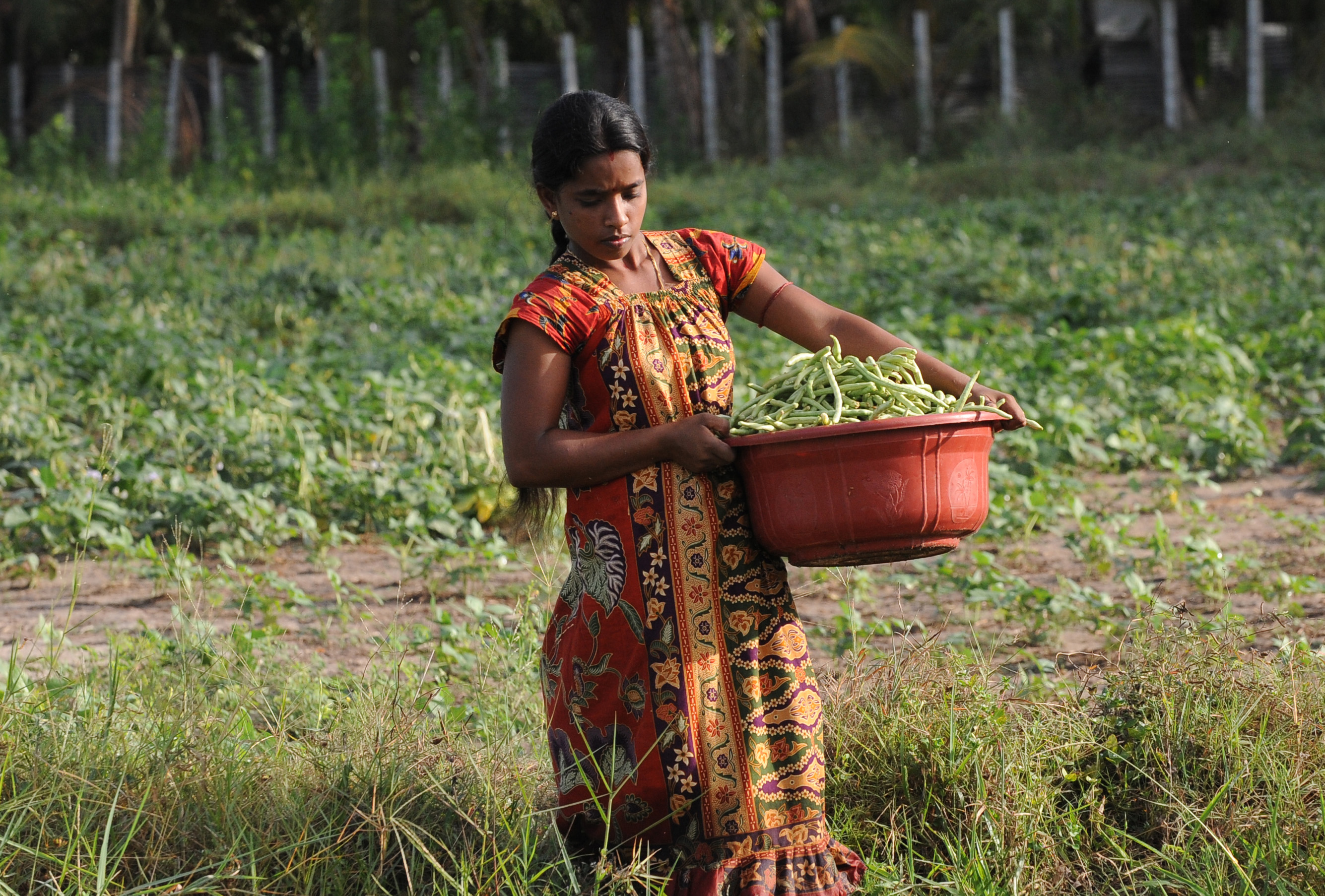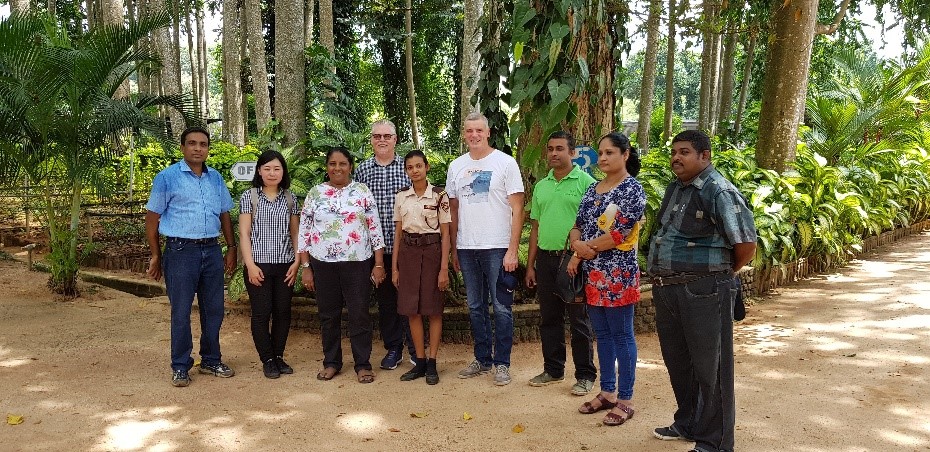Sri Lanka takes on a hands-on approach to strengthen plant health
©Ringolds Arnitis/FAO
For decades, Sri Lanka’s vast tea plantations have been the source of its rising economic fortunes and its reputation for quality agricultural exports. But banking on one’s reputation takes more than commitment to strengthen the top-down systems that safeguard healthy and safe harvest. It takes an integrated approach.
In 2019, Sri Lanka embarked on a phytosanitary capacity evaluation (PCE) as part of the IPPC Global Project on Capacity Development under the framework of the FAO-China South-South Cooperation Programme. The PCE was part of a broader to improve its plant health system and strengthen the agricultural exports upon which the country’s prosperity depends. Throughout the evaluation, quarantine staff met with customs authorities, representatives from importers and exporters associations as well as plant nursery owners responsible for the nation’s staple crops. This was to better understand the internal surveillance programs at work across the industry.

To gain a more hands-on look into the challenges facing the country’s plant protection system, the National Plant Quarantine Service (NPQS), Sri Lanka’s national plant protection organization, followed up these stakeholder meetings with a field visit to a tropical plant exporter. In the framework of the PCE Modules 8 and 13 related to pest surveillance and export certification aspects, participants could directly observe phytosanitary treatments being carried out on imported consignments of goods as well as consignments being prepared for export.
Field trips are a crucial part of the evaluation process, noted Ringolds Arnitis, PCE facilitator endorsed by the International Plant Protection Convention (IPPC) Secretariat to support and guide NPQS and stakeholders through the PCE process.
“The facility has over 40 plant species used for producing export cuttings,” he explained. “This visit helped to better understand the technical aspects of the pest surveillance and export certification system. It also demonstrated the system’s weaknesses identified when filling in the PCE Modules by consensus with all relevant stakeholders.
“NPPO staff would benefit significantly from training, clearer guidelines and knowing the operating procedures. Implementing digitalized systems and ePhyto would also be helpful in increasing efficiency and ensure trace back. The visit was an excellent approach that links PCE discussions during prior workshop meetings with practical observations in the field,” he said.
Shining a light on antiquated legislation and other benefits of PCE
W. A. Raveen Thushara Wickramarachchi, Additional Director (Plant Quarantine) and Senior Scientist (Plant Pathology) at Sri Lanka’s NPQS, said that the evaluation significantly helped them recognize how plant protection
legislation has fallen behind international norms. When Sri Lanka first embarked on its PCE in 2019, the country was still relying on plant protection ordinance formulated as far back as 1981.
W. A. Raveen Thushara Wickramarachchi, Additional Director (Plant Quarantine) and Senior Scientist (Plant Pathology) at Sri Lanka’s NPQS, said that the evaluation significantly helped them recognize how plant protection legislation has fallen behind international norms. When Sri Lanka first embarked on its PCE in 2019, the country was still relying on plant protection ordinance formulated as far back as 1981.

“International and cross-border trade has greatly evolved since then,” Wickramarachchi said. “Therefore, it is imperative that Sri Lankan rules, regulations and legislation be aligned with global standards. This will allow us to overcome cross-border issues due to the incompatibility of certain rules and regulations. In some instances, these have created trade barriers,” he shared.
In addition, Wickramarachchi noted that the PCE showed the benefits of bringing the country’s different border agencies to communicate more closely. The process also revealed the challenges from the lack of a centralized database between the different agencies that could have promoted quicker decisions around trade facilitation.
More importantly, the PCE process enabled the NPQS to identify and secure clear opportunities for external funding to improve its phytosanitary system.
“Based on this PCE and the gaps and needs we identified, we are now preparing the first application for project preparatory grant to secure funding,” Wickramarachchi shared. “This continuing process will ensure that the country’s bio-security framework is strengthened.”
Specifically, NPQS is developing new requirement procedures to further reinforce Sri Lanka’s phytosanitary infrastructure. The organization is also developing legal provisions for pest surveillance and pest risk analysis through the Plant Protection Act to promote consistent import and export provisions.
By working closely with industry stakeholders, NPQS has been able to prepare a National Phytosanitary Capacity Development Strategy, with technical support from the PCE facilitator and the IPPC Secretariat, using PCE guidelines and materials.
“This was a very good exercise to systematically identify our issues with the participation of many other experts,” Wickramarachchi said. “Therefore, this can be considered an authentic and valid document for us going forward. This final report will be an excellent example that we can refer to, to get assistance from other local agencies,” he concluded.

